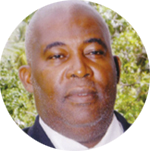
IN part one in the series on educational reform, I defined culture as a way of life of a group of people, an institution, a community; the behaviour, beliefs, values they accept generally, and that they passed along by communication and imitation, from one generation to the next.
Indeed, I also stressed that educational reform can be accomplished by changing the culture of new teachers coming into the profession. However, the school will also include teachers who are retained on the staff for the academic year.
Now, I continue to insist that the effective teacher must be proficient in the three characteristics of an effective teacher. I have indicated that the three characteristics of an effective teacher are: (a) An effective teacher has positive expectations for student success; (b) An effective teacher is an extremely good classroom manager and (c) An effective teacher knows how to design lessons for student mastery.
Indeed, in this article, I will emphasize positive expectations. Now, positive expectations simply means that the teacher believes in the learner and that the learner can learn. I will also emphasize on positive expectations of parents, and students themselves.
The two most important groups of people in the lives of children and students are parents and teachers. I wish to begin with parents, since the home is really the first school. There are some things that parents should never say to children: You are dumb! You are stupid! You are no good like your father or mother! You will never do anything good! I don’t want you; you were an accident.
I am sure many of you may have heard those remarks from parents. Indeed, they may have been said out of frustration. However, those remarks do untold damage to the child or children.
Similarly, a teacher may say to a struggling student, “You don’t belong in this class; you were placed here against my wishes!
Most, if not all, of us were students in a class at one time or the other. Just think about how you would feel if a teacher said that to you. Those remarks are devastating, aren’t they?
At this point, I wish to place more emphasis on the classroom teacher, since the students spend most of the school day with such a teacher.
The Psychologist, Robert E. Slavin, spent much of his educational research on ‘the effects of individual learning expectations on student achievement’.
Now expectations should not be confused with standards. Standards are levels of achievements. Teachers who practice positive expectations will help their students reach high standards.
Now what does it mean to have high expectation for your students? It simply means that your students’ achievement is strongly affected by what you, the teacher, expects of them, negative or positive. Robert E Slavin refers to that phenomenon as ‘The Self-fulfilling Prophecy’.
Now I wish to dwell on positive expectations.
Some examples of positive expectations are as follows:
“Our school is going to win the Primary Schools Spelling Competition”.
“I believe that every child can learn and will reach his or her fullest potential”.
“I am an effective teacher, and I am proud that I am a professional teacher”.
“I am always learning, and that is why I enjoy going to conferences, workshops, and in-service teacher training programmes”.
If the teacher expresses the positive expectation that the school will win the Primary School Spelling Competition, then the students will exert all of their energies to ensure that the school wins. And with that positive attitude, the school will win the competition.
If the teacher believes that every child can learn, then what he or she wants to happen will happen because he or she will expend his or her energy to realise success both personally and for the students.
Now we are in a school environment, therefore, the school administrators or principal would also express his/her expectations of the teachers, who are members of his/her staff. The principal would state explicitly. “You are special teachers and your students are special students who show potential for intellectual growth. Thus, we expect and know that you will do extremely well with these special students.
Indeed, the teacher will be most delighted to hear these comments from his or her principal, and would do whatever it takes to achieve a high level of success.
Now as an educator myself, I am making it clear that all the students in the class may not absorb or assimilate at the same pace or achieve at the same rate. However, there will be a commendable shift in learning or performance of the learners or students.
I’ve told you all this to indicate that the teacher’s expectations of his or her students will greatly influence their achievement in his or her class and ultimately in their lives.
Both parents and teachers should have high expectations of their children and students. The more the school and the family or home joined together as partners in educating students, the greater are the students chances for success.
At this point I wish to emphasize to you something that is important in the lives of your children and students. Children begin to learn from conception (womb) to about age 4 or 5 years. That period is referred to as the formative years.
Educational researchers have told us that from conception to age 4 or 5, the individual develops 50% of his or her mature intelligence; from about 4 or 5 to 8 years, he or she develops another 30%, and from 8 to 17 years he or she develops the remaining 20%.
The nature of the learning environment is most critical during the formative years of the child or student.











